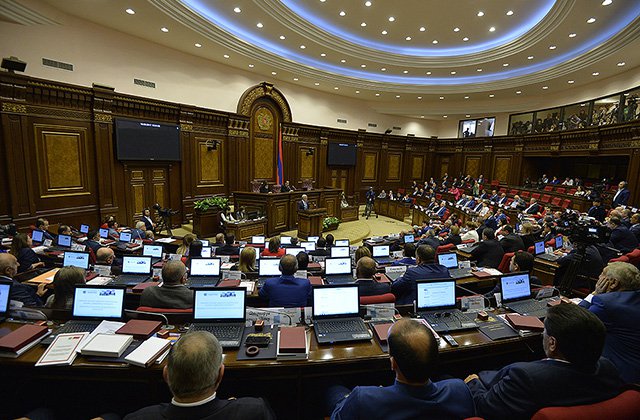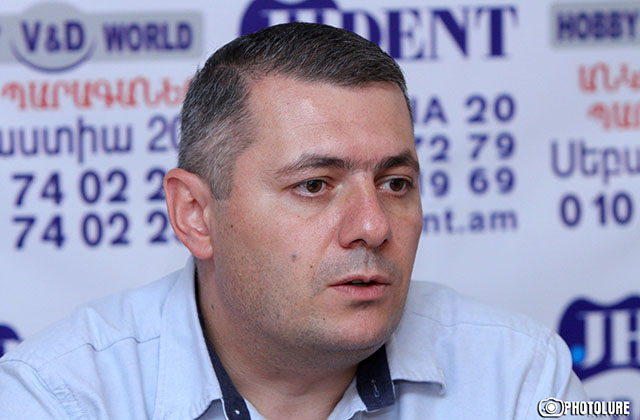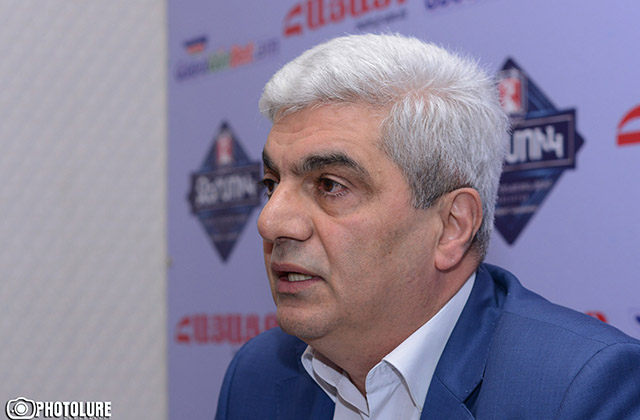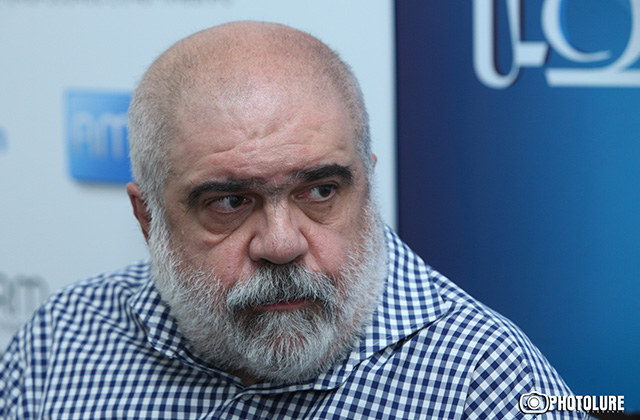“There will be no parliamentary pluralism”

In his speech at the Cabinet president Serzh Sargsyan reflected to the role and mission of the new parliament in foreign policy stressing activation of parliamentary diplomacy.
According to Sergey Minasyan, Deputy Director of the Caucasus Institute, from the perspective of parliamentary diplomacy the previous government was rather active and visible in some fields.

“For instance within NATO Parliamentary Assembly, CSTO. Regarding time and optimism the most active work is carried out within CSTO, however, we realize that effectiveness isn’t unilateral there—they are involved in all events, however, from the perspective of Armenia’s foreign policy maybe our activity isn’t so visible,” the political scientist told “168 Hours”.
Stepan Grigoryan, Head of the Centre for Globalization and Regional Cooperation, said comparison should be made not with the NA, but the quality of present parliament should be assessed,
“Parliamentary diplomacy, first and foremost, is expressed in international organizations, where we have delegations. The other format—relations with different countries, if interparliamentary work has been carried out. Frankly speaking, now I’m suspicious that through recent elections, where the role of money was rather big, we acquired a rather qualitative parliament. Yes, there are active MPs, however, the average level more comprises people from business or somewhere else.”

S.Grigoryan noticed that shift to parliamentary system should lead to the point, hat finally parliament’s impact on diplomacy was intensified, “However, as long as we’ll have a presidential institute for a year, the major role in foreign policy, in our policy, is that of the president.”
According to Alexander Iskandaryan, head of Caucasus Institute, parliamentary diplomacy has always existed, it always works and will continue working,
“Of course, main actors in our diplomacy are MFA and president’s administration, i.e. there is Foreign Ministry, which officially pursues Armenia’s foreign policy, and there is president’s administration, which forms that policy. It’ll change after April, as president’s institute won’t exist in that form and parliament’s role will increase, as it’ll become a central leadership in foreign policy, however, currently it’s mostly the president and MFA.”
According to Sergey Minasyan in a country with parliamentary system parliamentary diplomacy is more active and more visible, “ Alongside with it it’s clear there are issues, let it be Artsakh conflict, Armenia-EU relations, where parliamentary diplomacy is a crucial attribute not only from Armenia’s perspective, but it’s also an important segment, generally in bilateral relations. Thus, we’ll have parliamentary diplomacy as a separate field, however, alongside with it there will be seriously deriving or coordinated approaches around crucial issues—Artsakh, Armenia-Turkey relations, EU.”
Stepan Grigoryan considers in our country parliamentary diplomacy will be derived from the policy of the executive leadership, as the leading political party has majority, and according to him, it’s clear that automatically parliament’s diplomacy will be a derivative from the executive body,
“However, in real life it shouldn’t have been so. For instance, if we had more diverse parliament, that majority the leading political party has, was relative, e.g. they had 40 percent mandates, gained majority though coalition, in that case a more diversified snapshot would be observed. Our various MPs in the world would express opinions, they would be only positive, as when pluralism is observed, it’s always respected. It’s clear today it won’t be so.”
Alexander Iskandaryan states that currently parliamentary diplomacy depends on how the authorities manifest themselves, “Then it’ll change and the parliament will decide the policy and that time its role will increase. I mean in a year.”

Asked how the parliament can involve and participate in NK conflict settlement negotiations on account of secrecy and restricted number of the participants, S.Minasyan said negotiations are ongoing not on parliamentary level, but out of other peculiarities—also in the organizations with parliamentary branches, however it can’t express a crucial position, like in case of OSCE.
According to the political scientist parliamentary diplomacy in Artsakh issue could work actively if there were ties with Azerbaijani parliament, like 10 years ago,
“Ten years ago parliamentary diplomacy could play a crucial role, Armenians were going to Azerbaijan, Azerbaijanis were coming to Armenia, now everything is frozen, the first component is left—propaganda and anti-propaganda activity on parliamentary platforms.”
Stepan Grigoryan shares the view: parliament’s role could have been high, if Armenian and Azerbaijani MPs had the possibility for a dialogue.
“Here parliament’s role should be strengthened by another context, which is called establishment of trust atmosphere, e.g. if our parliament members could meet members of Azerbaijani parliament, discuss some issues and etc. However, the parliament can’t assume the role of an executive body. As the PM is a person elected by the majority, he should hold negotiations a year later, if they exist.”
By Razmik Martirosyan

























